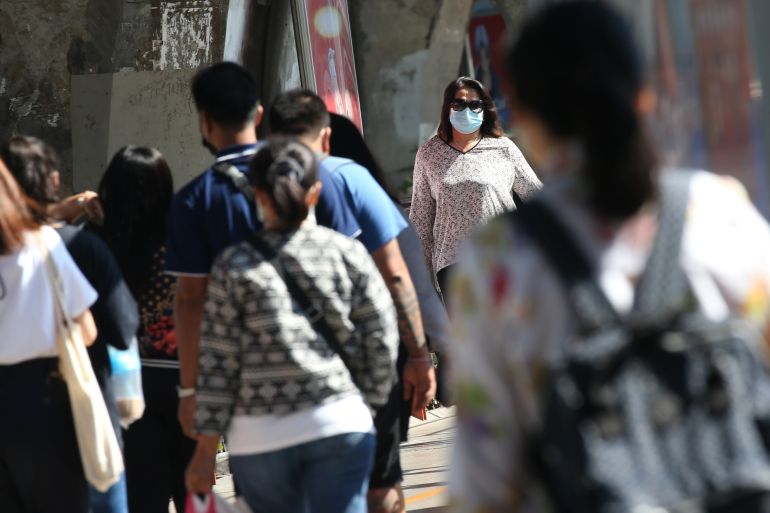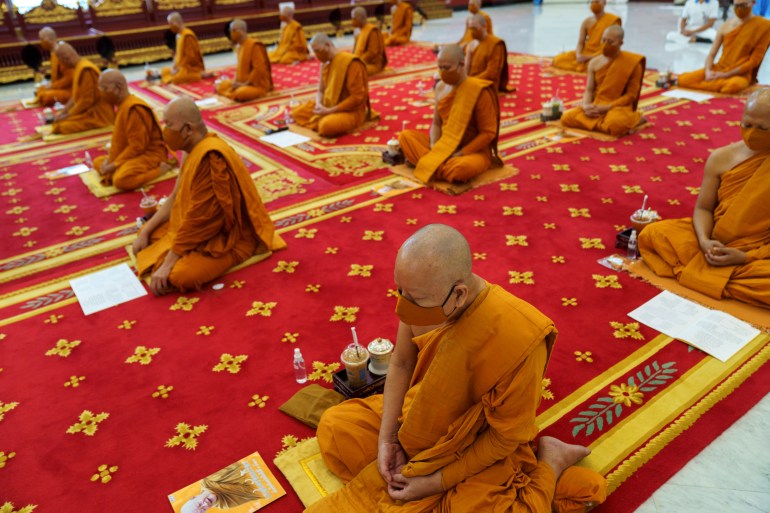Thailand legalises early abortions; pro-choice groups want more
Amendments expected to come into force this week, placing Thailand among more liberal Southeast Asian nations on reproductive rights.

Thailand’s parliament has passed changes to the country’s criminal code, giving women full abortion rights in the first trimester of their pregnancy, almost a year after a top court ruled that existing curbs ran counter to the constitution.
Pro-choice groups have met the move with muted praise. They say the amendments do not go far enough and warn that many women may still turn to risky illegal abortions unless the government also commits to raising awareness and expanding access.
Keep reading
list of 4 itemsThailand’s PM urges people to ‘stay home’ to contain COVID surge
Thailand mulls tougher curbs amid fears of second COVID wave
Anti-Myanmar hate speech flares in Thailand over spread of COVID
“It is a positive development to have certain legal grounds that allow abortion, but it is not enough to ensure that all pregnant women can access abortion and that their reproductive rights are advanced,” said Jihan Jacob, a senior legal adviser for Asia with the Center for Reproductive Rights.
Until now women in Thailand could get a legal abortion only if the pregnancy resulted from rape, or if giving birth posed a physical or mental health risk to the mother, or the foetus was impaired and only at the discretion of a licensed health care provider.
The amendments legislators approved on January 25 will leave the decision entirely up to the woman for the first 12 weeks of their pregnancy. Between 12 and 20 weeks women can seek an abortion under the old rules, or if they insist they have no alternative. All other abortions will still be a crime, although maximum jail time will drop from three years to six months.
“It’s not exactly what we want, but I think it’s progress,” said Dr Wayo Asawarungruang, a physician and legislators for the opposition Move Forward party who had pushed for broader abortion rights.
The changes will place Thailand among the more liberal countries on reproductive rights in Southeast Asia, where Vietnam sets no term limits for abortion while the Philippines deems any induced abortion a crime except to save a woman’s life.
The amendments are due to take effect by February 12. That is nearly a year after Thailand’s constitutional court ruled that the country’s abortion laws violated a woman’s rights to life and liberty and gave the government 360 days to fix them.

Human rights groups were hoping to divorce abortion from the criminal code outright so that it would be treated strictly as a healthcare issue, and worked with Move Forward to draft a bill of their own. Wary of blowback from staunch conservatives, the party settled on proposing a 24-week limit on abortions but still failed to get its bill out of committee.
By leaving abortion in the criminal code and merely making room for more exceptions, Wayo worries the stigma surrounding abortion – a sin under strict Buddhist dogma – will stick. And by splitting the rules for abortions before and after 12 weeks between separate articles in the code, he fears some women will still think that any abortion after the first trimester is a crime and continue to turn to illegal alternatives.
“They will not come for mainstream medical therapy because they’re afraid that they will be a criminal,” he said.
Sulaiporn Chonwilai, a consultant and researcher for local pro-choice group Tam Tang, said most women who choose to go ahead with an illegal abortion turn to the internet to buy pills of unknown provenance and quality, putting their lives at risk. She said local media last year reported on two women who had taken that route and died.
The abortion rights advocate said she was “very disappointed” by the amendments parliament passed and, like Wayo, believes shame, fear and confusion will continue to drive many women committed to terminating their pregnancies to risky, illegal options.
They also say the 12-week cutoff for unconditional abortions is too short as some women might not know they are pregnant for one or two months, or more, leaving little if any time to make a potentially life-changing decision.

‘I felt scared’
Napatt, a Tam Tang volunteer, said she did not know for months when she got pregnant in 2006 because years of taking contraceptives had upset her menstrual cycle. After a few more months of agonising over what to do, she was 24 weeks in when she finally found a local clinic that sold her a few abortion pills under the table.
“I felt scared of everything, that I might die, that the clinic was dirty, that the police would arrest me,” she recalled.
The pills worked, but the bleeding was profuse and the pain from the periods that followed excruciating. It was only a year later that she visited another doctor and learned that pieces of the foetus were still in her womb. Once the doctor removed them the pain finally dulled but it has never gone away.
Napatt said the new amendments would not help women in the same position as she was in 15 years ago and that they would not have helped her back then given the timing of her abortion.
“I still would have gone to an unsafe abortion clinic, so it would not have helped,” she said.
Statistics on abortions in Thailand are either outdated or incomplete. But judging by her own work on the issue, Sulaiporn estimates that about one in five women in the country who choose to have an abortion do so after the first trimester.
“In general we know that criminal restrictions do not deter the incidence of abortion and they just force many pregnant persons to undergo unsafe abortions,” said Jacob, of the Center for Reproductive Rights.
“So without actual access … to safe abortion, they are forced to undergo unsafe abortions, which then means that they are risking their lives and their health.”

But now that more women will have access to legal abortion in theory, human groups say authorities need to make sure that is true in practice.
Sulaiporn said many women who would qualify for legal abortions under the old rules did not know because the government and healthcare sector did little to spread the word and that the 100 or so hospitals and clinics licensed to terminate pregnancies are not enough.
“If they didn’t plan for the budget, they didn’t set up the doctors, they didn’t do anything, it cannot help women to get access to abortion easier, [and] I think it will be the same like before,” she said.
Government spokeswoman Ratchada Thanadirek said plans to bolster abortion services and advertise the new rules were in the works but defended putting some legal limits on when a woman could choose to terminate a pregnancy.
“We understand the expectations, but from the government perspective we have consulted with several medical agencies; it’s not just based on the law perspective, but it’s from the health perspective for women as well,” she said.
The Medical Council of Thailand and the Royal Thai College of Obstetricians and Gynaecologists both recommended the 12-week limit.
“Before we didn’t allow any kind of abortion except that would harm the mother’s health or for the [rape] case,” Ratchada said.
“Now we allow women to have abortions, so I think this is progress, big progress, and the way to show that society should respect the rights of women.”